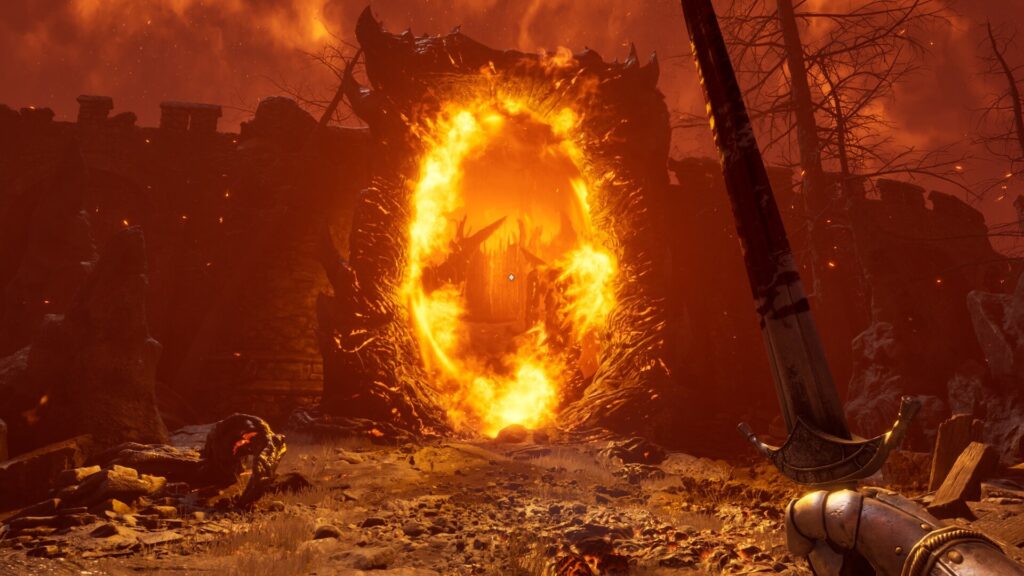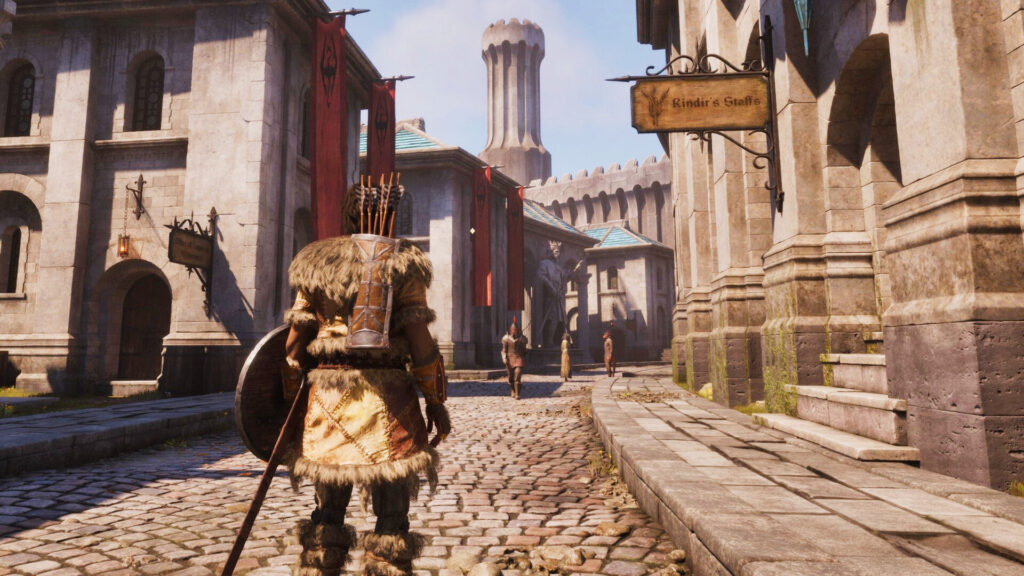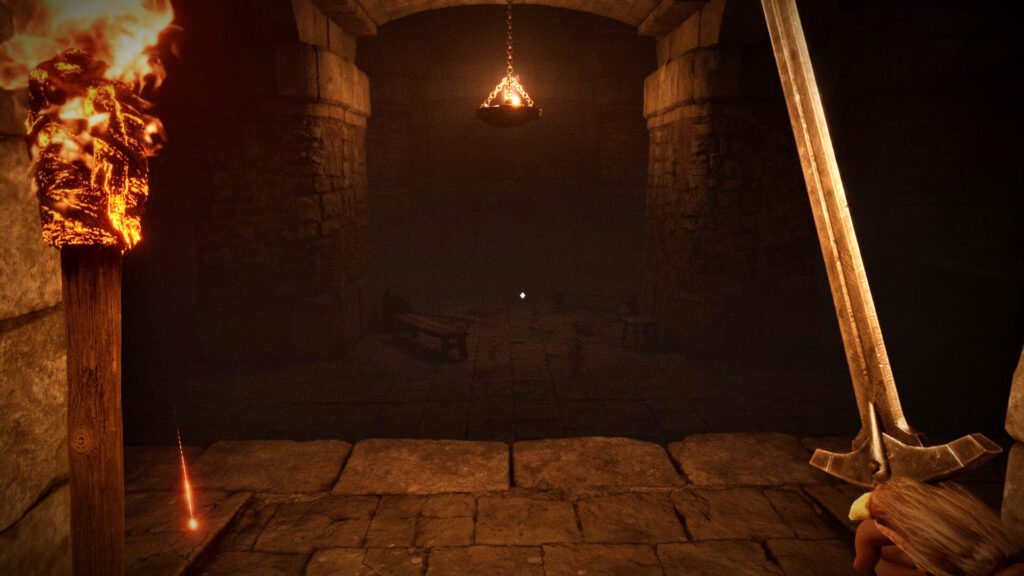The thing about The Elder Scrolls 4: Oblivion Remastered is that it is an honest-to-goodness old-school sandbox RPG. Sure, it's been given a fancy new lick of paint, but the nitty-gritty of it is very much classic Bethesda, and that means it's very obtuse in some ways. Did you know Oblivion's got a comprehensive disease system in place, for example, with literal vampirism being one of them? Yeah, prepare for a rabbit hole if you're new to this!
In Oblivion, vampirism is known under the name of Porphyric Hemophilia: it's semi-magical in nature, but you actually contract it simply by coming into close-quarters combat with a person that's previously been infected. A vampire, in other words. Obviously, if you're attempting to role-play a vampire in Oblivion, this is something you may wish to pursue, but otherwise, there are some things you ought to keep in mind to cure your character before the disease progresses too far.

Everything You Need to Know About Vampirism in Oblivion Remastered
Oblivion's vampires are a conflicting bunch. A number of these creatures is downright menacing, but not all of them are, and so there's nothing innately turning you evil should you contract Porphyric Hemophilia: it's just a gameplay choice you too might get to make.
The Elder Scrolls 5: Skyrim players may recall that this game had entire quest-lines and even DLCs dedicated to vampirism and lycantropism, respectively. No such thing in Oblivion, for better or for worse: vampirism is here effectively just a really fancy, spruced-up disease that you can (but don't have to) cure yourself from. To that end, first we'll go through the mechanics of Porphyric Hemophilia, and then list out its many, many pros and cons in a separate section.
Porphyric Hemophilia explained
The kicker to Oblivion's brand of vampirism is that it's a relatively manageable modifier applied to the rest of your character's skills, stats, and customizations. You can complete the game and a majority of its quests as a genuine vampire, as long as you keep your symptoms under control.
In Oblivion Remastered, you can contract vampirism at random upon taking melee hits from a vampire in combat, as we stated before. Since there are a bunch of vampire lairs strewn throughout Cyrodyll, you do need to be prepared for this eventuality if you wish to avoid contracting the disease, and to that end we highly recommend carrying a few potions of Cure Disease with you at all times.
More broadly, there are three different ways to become a vampire in Oblivion:
- Close-quarters combat with a vampire.
- Playing through the Mehrunes' Razor DLC content, choosing the option to eat the Beating Heart.
- Completing the Dark Brotherhood questline and speaking to Vincente Valtieri.
The easiest and fastest way will, most certainly, be to visit one of those vampire lairs we mentioned above:
- Barren Cave - cave to the west of Cheydinhal.
- Bloodcrust Cavern - cave southeast to Skingrad.
- Crowhaven - fort northwest of Anvil.
- Fanacas - Ayelid ruin to the north of Cheydinhal.
- Fort Carmala - fort to the south of Chorrol.
- Fort Hastrel - fort to the northwest of Kvatch.
- Fort Naso - south of Cheydinhal.
- Fort Redman - smack-dab between Leyawiin and Bravil.
- Fort Redwater - fort found to the east of Bravil, following the Panther River.
- Fort Vlastarus - east of Skingrad.
- Gutted Mine - a mine north of Cheydinhal.
- Jakben Imbel's house - Imperial City manor found in the Talos Plaza District.
- Lipsand Tarn - Ayelid ruin north of Chorrol.
- Memorial Cave - southeast to Imperial City.
- Ninendava - Ayelid ruin to the northeast of Chorrol.
- Nornalhorst - an Ayelid ruin to the east from Skingrad.
- Redwater Slough - a cave far to the east from Bravil.
Just head on over to one of these locations and get smacked by a vampire or two: it shouldn't take too long before you've got vampirism of your own!
How to cure Porphyric Hemophilia?
If you've got potions of Cure Disease on you when you contract vampirism, curing it is as simple as drinking one! The game lets you know that you've contracted Porphyric Hemophilia via a relatively easy-to-miss message in the upper left corner of your HUD. We also recommend checking on your character's status in the Magic inventory tab, via the rightmost status sub-tab.
Upon contracting vampirism, you'll have 72 hours before it progresses to a stage where you no longer have the ability to cure it via a Cure Disease status effect. Note that this effect can be applied via potions, spells, and unique ingredients, like the Mandrake Root. Any of these will save you from turning into a vampire, so it's not a huge deal.
If you do not cure your vampirism in 72 hours, though, you will become a full-fledged bloodsucker the next time you sleep.

Pros and Cons of Vampirism in Oblivion
Oblivion Remastered's vampirism progresses in stages, and in a subversion of the trope, the vampire grows stronger the longer they do not feed on humanoid creatures. The issue with this is that this also makes you more obviously monstrous, turning regular NPCs hostile to you on sight. To say nothing of taking extreme sunlight damage.
Upon becoming a vampire, you gain all of the following boons:
- 100% disease resistance.
- 100% paralysis resistance.
0-24 hours from your last feeding you gain:
- +5 Attribute and Skill bonus.
- 20% weakness to fire.
- 5% resistance to weapons damage.
- Hunter's Sight vampire ability.
24-48 hours from your last feeding, you gain:
- +10 Attribute and Skill bonus.
- 30% weakness to fire.
- 10% resistance to weapons damage.
- 1 HP/s sunlight damage.
- Vampire's Seduction ability.
48-72 hours from your last feeding, you gain:
- +15 Attribute and Skill bonus.
- 40% weakness to fire.
- 15% resistance to weapons damage.
- 4 HP/s sunlight damage.
- Reign of Terror vampire ability.
72+ hours from your lasts feeding, you gain:
- +20 Attribute and Skill bonus.
- 50% weakness to fire.
- 20% resistance to weapons damage.
- 8 HP/s sunlight damage.
- Embrace of Shadows vampire ability.
Balancing vampirism in Oblivion is a mini-game all of its own, and since the only way to feed is to skulk around people's homes while they sleep, this is basically a gameplay-defining modifier that will change how you approach even the main quest, let alone any of the many optional side-activities.
Most notably, if you keep feeding regularly, most people won't be able to tell you're a vampire.
How to feed as a vampire in Oblivion?
Feeding is quite janky in Oblivion, and this extends to Oblivion Remastered as well. The only way to feed as a vampire is to sneak up to a sleeping humanoid and "activating" them with the 'use' key. This triggers the feeding process, resets your vampirism stage back to the 0-24 hour modifier, and allows you to move on with the rest of your quests.
Obviously, you must not be seen while feeding, because otherwise it will be reported as a crime and trigger a guard huntdown. Not ideal! Also crucial is the fact that you don't actually kill the person you're feeding on, so you can keep coming back to feed on them over and over again, if it is safe to do so.

Are you going to play a vampire in Oblivion?
The crucial thing to remember about vampires in The Elder Scrolls games, and Oblivion in particular, is that it's entirely possible to play most of these games as a creature of the night. The gameplay accommodates the modifier as long as you stay on top of your stats and cons, which makes it an excellent choice for those that really want to role-play vampirism.
Keep in mind that, while there is a way to cure Porphyric Hemophilia after the initial 72-hour period has passed, it's a one-off solution that makes it impossible to turn back into a vampire later down the line. This quest can be triggered by visiting Raminus Polus over at the Arcane University at Skingrad as a vampire. Something to remember as you go about your merry vampiric way. Good luck!
Not even Sheogorath will help you.